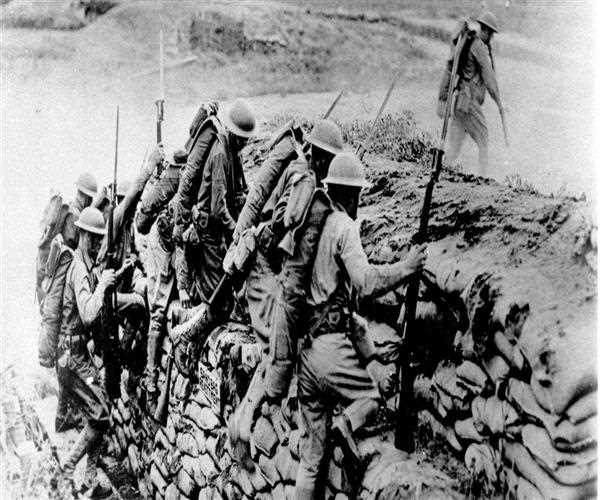In the wake of keeping up nonpartisanship for the initial three long periods of the war, the United States chose to formally enter the First World War on sixth April 1917. Starting their situation with unsurprising, conventional lack of bias when the war broke out in 1914, the United States dodged war as per their long-running focal subject in remote strategy, abstaining from 'snaring collusions'.

The mind-boggling set of conditions that in the long run prompted the inclusion of America in the First World War, brings about there being no solitary guilty party or straightforward clarification for their unique non-association changing into a genuinely phenomenal assault on the German powers. Nonetheless, because of a long skirmish of Woodrow Wilson's soul concerning peace goals, creating sensitivities for Britain and a developing prejudice for progressively antagonistic German military strategies as the war advanced, a relationship with the Allied powers turned out to be always likely.
On second April 1917, President Wilson, at last, made a delivery to a joint session of Congress asking for an announcement of war against Germany, and that the United States should shed their lack of bias and enter world war.
As far as American optimism, it was inescapable that the United States should see the war from the point of view of an unbiased base; as far back as Thomas Jefferson's first debut address in March 1801, American remote arrangement has delighted in 'catching unions with none' as a key feature. Historian Ronald Powaski attested that in maintaining a strategic distance from such cooperations, it was principal that the United States ought not to fret about issues of nations far off, particularly European wars – an issue President Wilson perceived quickly upon the flare-up of war.
Wilson was a devoted dynamic internationalist at the flare-up of war, bringing about his statement of noninterventionist arrangements in the first place so as to save these standards of resistance to war through attesting and looking after peace; his definitive objective for wartime was to end up an outer middle person between the two sides.
Notwithstanding American standards of a relationship of quiet countries by the method for demobilization and universal companionship, the war in Europe seethed on. As per Thomas Knock's depiction of the effect of internationalism on Wilson's point of view on war, with the expanding death toll and the decided pugnacity of the German powers, every single dynamic internationalist acknowledged that possible United States inclusion in the First World War was inescapable, and that the most ideal route for Wilson to push ahead intercedes in an endeavored course of action of quiet attention, therefore Wilson proposed the completion of war without a victor.
However, Knock proceeds, with Germany's fierce dismissal of 'peace without triumph' being shown by the sinking of a further three American boats, Wilson had no real option except to meet the German powers with quality trying to anticipate advance unjustified murdering; however Wilson's objective of guaranteeing the world was a protected and serene place for the improvement of majority rule government and internationalism did not change, by April 1917 Wilson understood that he currently needed to join the war to end it.